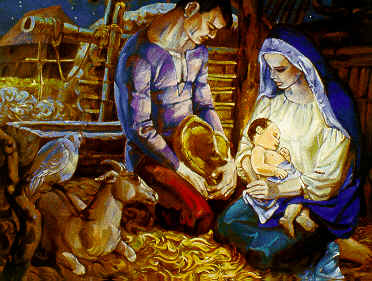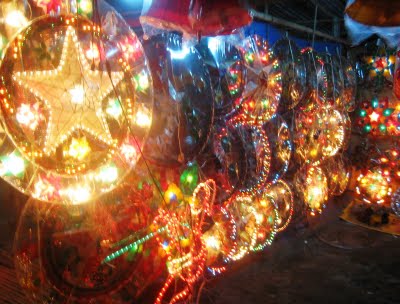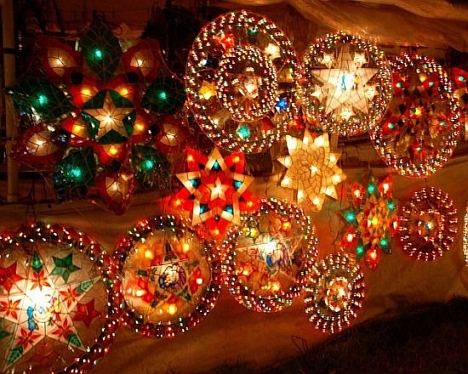- HOME
- INTRO TO THE FORUM
- USE AND MISUSE
- BADLY WRITTEN, BADLY SPOKEN
- GETTING
TO KNOW ENGLISH - PREPARING FOR ENGLISH PROFICIENCY TESTS
- GOING DEEPER INTO ENGLISH
- YOU ASKED ME THIS QUESTION
- ADVOCACIES
- EDUCATION AND TEACHING FORUM
- ADVICE AND DISSENT
- MY MEDIA ENGLISH WATCH
- STUDENTS' SOUNDING BOARD
- LANGUAGE HUMOR AT ITS FINEST
- THE LOUNGE
- NOTABLE WORKS BY OUR VERY OWN
- ESSAYS BY JOSE CARILLO
- Long Noun Forms Make Sentences Exasperatingly Difficult To Grasp
- Good Conversationalists Phrase Their Tag Questions With Finesse
- The Pronoun “None” Can Mean Either “Not One” Or “Not Any”
- A Rather Curious State Of Affairs In The Grammar Of “Do”-Questions
- Why I Consistently Use The Serial Comma
- Misuse Of “Lie” And “Lay” Punctures Many Writers’ Command Of English
- ABOUT JOSE CARILLO
- READINGS ABOUT LANGUAGE
- TIME OUT FROM ENGLISH GRAMMAR
- NEWS AND COMMENTARY
- BOOKSHOP
- ARCHIVES
Click here to recommend us!
MY THOUGHTS EXACTLY
This section seeks to promote and encourage the felicitous use of English in expressing ideas, thoughts, and feelings. It welcomes well-thought-out compositions in English, particularly original essays, articles, short stories, and verses written by the Forum member himself or herself. Forum members and guests are welcome to contribute to the Forum.
Members who wish to contribute material to this section may post it directly in the “My Thoughts Exactly” discussion board. Nonmembers may send material by e-mail addressed to The Moderator, jcarilloforum@gmail.com.
10 Enduring Remembrances of Christmases Past - Redux 3
In the spirit of the Christmas Season, and particularly for the benefit of Forum members who joined us only after December 2012, we are once again posting this special Christmas feature that first appeared in the Forum in December of 2010. From various parts of the world, 10 Forum members and a regular guest recall their most memorable Christmas experiences or share their most intimate thoughts about Christmas. Whether celebratory, affirming, or contrarian, their multifaceted thoughts remain timely and timeless as ever—a veritable springboard for our own reflections about Christendom’s holiest of seasons.

PANUNULUYAN
From the book Pasko!: The Philippine Christmas by Reynaldo G Alejandro, Marla Y. Chorengel et al.
Published and exclusively distributed by National Bookstore and Anvil Publishing.
How could I forget Christmas?
By Tonybau, Forum member
BAGUIO CITY, Philippines—How could I forget Christmas?
Flashback to the times when we kids had no understanding of what the season signified.
This was always the time when those well-worn, screwed on, paint-chipped incandescent Santa Claus bulbs would light up our old house’s porch as well as the Christmas tree. LEDs were not even in the far imaginings of scientists. Fascinated by those non-blinking lights, I stared at them for the longest time, wondering how they lit up and wondering when Santa would come to bring my gifts and park them beneath our tree, for he had lots of trees to attend to.
It was the time to sing carols with my peers. It mattered not if we mangled the words of a song or mouthed what seemed to be the appropriate lyrics if we didn’t know them. There was safety in numbers, after all. “Empre empre emproom. Empre empre emproom. And heaven and nature sing...” you know that, don’t you?
It was the time when closed gates were no deterrent to us diminutive carolers. By sheer determination, we would end up on a reluctant host’s porch, belting out our favorite Christmas medleys for each home we perceived to have something more promising to give than the last one. Scrooges, beware! If you were one, improvised songs would deride you as we hurriedly left, among them, “Balay a potot, Balay ti naimot!”—the last phrase meaning a scrooge’s house.
Caroling was our early introduction to economics. We had older guys who knew how to count money because, out there, waiting for us, were cash, and candies. It was the season to be jolly! The cash would be equally split up among all who joined, in the wee hours of the morning. No matter the hoarseness from trying to impress the hosts with our perceived angelic voices, in the cold, the end goal was how much our shares would be from the loot, if you want to call it that. The candies were savored in between houses. We’d save some, too, to show off to friends who didn’t join us those nights, to make them drool as we recalled the night’s fun.
We raced against other groups who had similar intentions of making the season a noisy, but profitable one. We lit up firecrackers as we went. Who cared about giving? We were out to enjoy ourselves. Christmas eve—the last night for caroling was followed by a simple noche buena at home. Bleary-eyed and exhausted the day after, each one of us would be engrossed with our own families, our gifts and our “loot.”
My second name is Emmanuel. My birthday falls on...you got it right! Christmas day!
How could I forget Christmas?
The season’s greetings to all!
For me, Christmas hasn’t been totally corrupted as a holiday
By Isabel Escoda, Forum guest
HONG KONG—One of my favorite stories about the holidays deals with the book A Year Without “Made in China” by American Sara Bongiorni who, along with her husband, embarked on an interesting project. They decided not to buy, starting before Christmas, any Chinese-made stuff for a whole year. Needless to say, they experienced great difficulties, in this day and age when the world is inundated with Chinese-made goods.
The Bongiornis did this not because they hated China but because they wanted to find out what stuff is still being produced in the US and in countries other than the ubiquitous People’s Republic.
Sara hilariously recounted the lengths to which she had gone to buy items like simple household items easily found in the usual outlets—a new cartridge for her home printer, clothes and toys for her two young children, Christmas decorations (even candy canes are made in China), and various gifts for relatives and friends. She spent inordinate amounts of time online trying to locate badly needed things, even driving to neighboring towns and out of state (she lives in Florida and works as a journalist) to purchase badly needed items. They were able to find things from Japan, Mexico, and the Philippines, among other countries. She had to compromise on the cartridge that her husband brought from his office (though made in China, she could claim not having paid for it—which was cheating a bit).
The couple made it through the year, concluding sadly that the old days are gone when the U.S. produced all manner of goods much coveted by the rest of the world. Which, of course, says much for globalization that has helped other parts of the world, besides China, emerge from abject poverty. Proof of this can read about in The World is Flat by Thomas Friedman.

I personally find Christmas these days so corrupted that, like many others, I wonder what this Christian festival would be like if the world had not now become a smaller place ruled by advertising and the media. In Hong Kong, where I’ve lived for many years, the celebration of Christmas and the Western and Chinese New Years are so crassly commercialized it’s almost maddening—but perhaps not as maddening as what goes on in the Philippines with regard to how my compatriots relate to the holiday.
The Chinese have historically believed that creating noise with firecrackers during holidays drives away evil spirits. This is probably still practiced in remote parts of China, and perhaps in the big towns, too—mainly to give the natives a bit of relief from the authoritarian Communist strictures. The practice has been controlled in Hong Kong, though some recalcitrants still set off a few explosions in the outlying island of the New Territories where I live.
But none of that is like what I experienced during a visit to Cebu in November this year. The residential area where I stayed with relatives would explode at all hours of day and night—in anticipation of Christmas and New Year’s. And my sister in her Dumaguete suburb tells of how a neighborhood blast went off at dawn last October; when she went over to ask why the peace had been disturbed so early, she was calmly informed that it was to mark “Mama Mary’s” birthday.
Going down memory lane, I recall that for Christmas, some of us kids made our own gifts (booklets of poems, cross-stitched samplers, drawings), something hardly any kid today would even think of doing. The spirit of giving now seems lost in the mad quest for manufactured gifts like plastic and electronic ones that seem such dross. But I can be thankful that I have a teenage granddaughter (who dreams of being the new Barbra Streisand) who sent me a CD of her crooning, and another (who plays drums and guitar) who sent me hers. So, for me, the holidays haven’t been totally corrupted.
The beauty of Christmas is the joy of the celebration itself
By Hill Roberts, Forum member
MALAGA, Spain—Is there plenty of food available? Do we need to walk the length and breadth to celebrate Christmas? Why is Christmas so special, and what is the sense of it? We want Christmas to be extra-special, to be happy or happier, to spur us into sentiments that we can look back to. It is another bonus to life, whatever that means. We rush around, not even knowing what to buy, what to plan; we think about tinsel gleaming brightly, about the cold weather in Europe and other northern parts. We go to Christmas plays and feast in nice restaurants; we dance at the ball and watch the children romping around in their nice outfits. And oh the drinks and the drinking! the beautifully-wrapped presents that we open with sheer excitement! the carols and hymns that are played in shops and homes! the bearded fat men in red-and-white outfits hoo-hooing and smiling at children running to them for sweets and a hug!
Whatever it is about, the beauty of Christmas must be the joy of the celebration itself. Of course we know that it is now highly commercialized, but who cares? Adults and children love Christmas. We all look forward to this season. It is inexplicable to doubt the glorious effect it has on the majority of people around the world. How can we shove Christmas to one side when it is one season when we can share gifts, love, and joy? How can we do that when it’s the time that we can see in children’s faces glee, wonderment, and purity of acceptance?
The emotion felt by kids receiving Christmas presents is another plus in an otherwise bleak year for many families. All over the world, we see pockets of war, poverty, violence, natural catastrophe. But Christmas also brings a moment of peace and harmony. We can all share in the sadness but at the same time, Christmas can also be an engine of new-found inner peace and understanding. The sense of Christmas is having Christmas each December. We all await this special time of year without the usual guilt we keep in our thoughts.

So there’s no stopping Christmas. Even in the Islamic world, they celebrate Christmas with the Christian world. Christmas brings us all together. It keeps the tills going; it employs people; it puts money in people’s pockets; it may bankrupt some, temporarily, but in the five continents that love and celebrate Christmas, that’s just the way it is. It gives meaning to an otherwise drab month. Christmas makes sense and it is this that gives us the sense to understand better about us, too.
A very, very Happy Christmas to you all! May it be just as good or better, happier! Above all, may it be another peaceful, more prosperous and doctor-free, dentist-free year!
She’ll always be our Lady Liberty and Santa Claus
By Rocky Avila, Forum member
CALIFORNIA—The month of December reminds me of some bittersweet memories. It also reminds me of a series of “firsts” in my life as a boy.
I was among a group of first grade enrollees accepted in my school immediately upon the opening of schools at the end of World War II.
As a first grader, I experienced for the first time becoming a participant in a Christmas program that was held in my school also for the first time after the war.
That day, I tasted Hershey’s chocolate and chewing gum for the first time. It was also the first time in my life to see the legendary Robin Hood on screen; Errol Flynn, who starred in it, eventually became my idol.
As years passed by, I became mature enough to raise a family. Then time came for us to look for a greener pasture. With the help of my younger sister Cory, a U.S. citizen, we were able to migrate to America.
Ten days before Christmas 1984, my wife and I along with our two children set foot in California as fifth-preference immigrants. We were so excited!
We celebrated our first Christmas in America, profusely thankful to the Lord for the opportunity that He had given us. It marked the beginning of a new life for us.
Every Christmas Day, we celebrate the birth of the Messiah complete with pancit Malabon, eggrolls, bibingka, and suman with a twist of Batangas or barako coffee and soda. A karaoke machine plays native Christmas carols to keep us reminded that we are in a home away from home.
But everything has its end. A couple of months before Christmas 2009, my sister Cory passed away. We were deeply saddened. We missed her a lot on Christmas Day that year.
This year, as Christmas approaches, I know that Cory will not be with us. Her absence again reminds me of the scenario I witnessed in the cemetery during her burial. That scenario makes me remember our arrival at the airport as well as our first Christmas in California. Without her, my family would not be here.

That moment also makes me recall the inscription on the Statue of Liberty that says:
Give me your tired, your poor,
Your huddled masses yearning to breathe free,
The wretched refuse of your teeming shore.
Send these, the homeless, tempest – lost to me.
I lift my lamp beside the golden door.
I vividly remember how it was when Cory’s mortal remains were lowered to their final resting place. I tried to compose myself amidst my grief. I became so emotional thinking of our humble beginnings in America. We arrived in America in December 1984 with literally nothing but the clothes in our backs and a couple of luggage—much like centuries ago when our early American counterparts left Europe to come here for a better life. We had nothing but the drive and desire that somehow, someday, we, too, will realize the American Dream. With the grace of God and the help of Cory, the American Dream eventually became possible for us.
Having been born and raised in a country where despair and poverty are a normal way of life, and having read in the books and magazines that many other countries are denied freedom and justice, every day I thank God that we are now in America. And it is all because of Cory that we are here.
Certainly, her name “Corazon,” which is Spanish for “heart,” befits her personality. She was such a kind-hearted person. Much like Lady Liberty, she was compassionate and unselfish.
Cory is now with God singing Christmas carols with His angels in heaven. To us, Cory will always be our Lady Liberty and Santa Claus.
Merry Christmas and a Prosperous New Year to all!
The Christmas magic
By Purple Flowers, Forum member
By Purple Flowers, Forum member
KAWIT, CAVITE, Philippines—Christmas is the time of the year that I love and dread the most. This might sound like an oxymoron to some but that is exactly how I feel when this particular holiday is just around the corner.
Let me begin with the “love” part. I fell in love with Christmas from the time I understood that this is the only time of the year that I get a ton load of gifts and surprises from godparents, family members, relatives, neighbors and even-strangers alike. This is the only time of the year as well, that I get to see distant relatives bringing in their delectable dishes to the family table and we, my few cousins and I are allowed to play without restrictions or till we drop from sheer exhaustion. This is also the time of the year when misunderstandings of my uncles and aunties from both side of the family are threshed out and peace was finally made. So it was really a big, great holiday for me, especially when my uncles and aunties along with my cousins showcase their talents in singing and dancing. It’s one hilarious carnival show and makes you feel all warm inside, something that I always look forward to every year.

Now, the “dread” part of Christmas came when I eventually got married and had a child of my own. Like everyone else in the family, I look forward to bringing my little girl to these family festivities. Unfortunately, the man I married had a different idea about how a family should be raised. So while I make excuses in his absences, he was out busy painting the town red with someone else. Needless to say, the day came that I could offer no more excuses, so in front of my family I had to admit that my marriage had headed to the abyss. For a family that had been very supportive form the time I started to take my first steps, it was a total shock. After all, I was the only separada in the clan. Whatever was running through their minds on that 2002 Christmas, my family and kin never showed it; they simply accepted what I was going through and loved my little girl even more.
Now Christmas is here once again. I have no idea how I would spend this Yuletide considering that most of my siblings, relatives, and other kin have since relocated locally and globally. The few left are my uncles and aunts who have decided to retire in the rural areas. Christmas cards started coming in these past few days and although I would be spending the holiday with just my mom, my daughter, and a number of my nephews and nieces, I would like to recreate that Christmas magic my clan has generously bestowed on us and hopefully—though not complete as we were before—still find completeness in the legacy of love, forgiveness, faith and acceptance they showed me that Christmas eve when I became a single parent.
My third Christmas in my third life
By Miss Mae, Forum member
ABU DHABI, United Arab Emirates—This season is my third Christmas in my third life.
I should be merry. Not everyone is given another try; more so, a third try.
But then, not everyone can’t walk. Not everyone can’t eat properly. Not everyone can’t remember things.
Not everyone can’t do what he or she likes most (which is writing, in my case). Not everyone can’t keep a loved one. Not everyone can’t be who I am for three Christmases now.

I had a brain operation two weeks before my grade school graduation. It’s AVM, the doctors said. I also read the terms “hydrocephalus” and “aneurysm” in the medical report. They both mean the same thing to me, though: a year away from school, a year away from my plans and future.
High school came and college passed. I was accepted in a local newspaper in a foreign land. I was preparing for an art exhibition when my forehead ached. The pain was like and unlike what had I felt before. It was excruciating, all right, but it wasn’t in my right ear.
I was still able to call a friend who is a physiotherapist. I was still able to dress up and drag my feet downstairs. I was still able to climb onto a hospital bed and bid those around me to take care of my mother whatever happens.
So what happened before had recurred. It took me almost two months to realize that. So I was given another chance. I just cannot do anything much to consume that. So I have the rest of my third life to deal with. There’s just nothing much left for me.
I suppose we would celebrate this season like we have been doing before: with friends, with gifts, with food. Our guests would wish me well again. I, after all, still couldn’t walk. I, after all, still couldn’t move properly. I, after all, still rely on other people’s mercy.
I just still try. I know what I must do anyway. At the prime of my life, I just don’t find starting from scratch again—and again—a Christmas gift. Only when I finally can could it be one.
We should have valid reasons for doing things
By Flor Lacanilao, Forum member
MANILA—I am no longer fond of celebrating or observing common practices or traditions—fiestas, anniversaries, or even Christmas. When I was a child, though, I always looked forward to the joys of receiving gifts, of caroling for Merry Christmas, and of lighting sparklers for a Happy New Year. Now in my twilight years—while I still find pleasure in watching my grandchildren enjoy the Season’s celebration—I often think of the reasons why we observe such events, particularly practices or traditions related with religion. And now is perhaps a good time as any to think seriously about such behavior by looking closely at three examples.
It is common in wedding anniversaries for couples to renew their wedding vows. Does this mean their marriage or relationship has weakened through the years that it has to be renewed? Or does this mean that they need a fresh start (which is no longer possible), or a reminder that they are still married? Either way, the “renewal” of wedding vows could be interpreted to mean that a marriage has failed or is failing.
Recently, I was at the golden wedding anniversary of a friend who was celebrating the event with his wife largely in thanksgiving. There was no renewal of wedding vows; he explained that wedding vows are unlike a driver’s license, which has to be renewed because it expires. But the celebrants gave each other a golden ring (perhaps the old rings had faded) in celebration of the 50 years they’ve been together as husband and wife. No words were spoken in the exchange of the rings because everyone already knew what it meant.

Many of those who announce the death anniversaries of their loved ones request readers to pray for the eternal repose of the souls of the departed—never mind if they have been dead for years. I wonder how many readers of death notices heed their call for prayers. And I doubt if one could appeal the fate of a soul denied of eternal rest on Judgment Day.
Why do most Filipinos have to endure heavy traffic and crowded cemetery to honor their departed on November 1st? What is wrong—or what will it make with the dead—to pay respects on the day, or weekend, before or after?
If we are to move forward, I think we should have valid reasons for doing things. Common practice and tradition are hardly good enough reasons to justify our actions.
Happy New Year!
A time when even naughty boys turn into real angels
By madgirl09, Forum member
Christmas trees are supposed to be the usual conifer or cypress that looks like the ones we see on Christmas cards when the West cuts its treetops close to Christmas Eve. Where I grew up, though, they had a different view of what Christmas was like.
Fresh from those toddler days in Manila, all I knew about Christmas were these—receiving gifts from uncles and aunties, lots of candy canes and dolls of various sizes, breaking my old piggy bank to be replaced by a new one. But by staying in the province, I began to see the deeper meaning of this season. There were no parades like the ones organized by Mayor (Ramon) Bagatsing; it was an occasion where my grandfather was a big figure in the neighborhood, telling others to do this, to prepare this and that. But he never let anyone else do the Christmas tree trimmings but him. His unique choice of Christmas tree—the one glittering with sampaloc fruits that had ripened in their boughs to look silvery—was the most gorgeous of the Yuletide trees in the barrio. There were some other fresh ornaments I could see, but they were naturally grown from his farm and made beautiful with the marvelously tied knots of brown hay and ipil-ipil garlands. I just stared at the whole giant tree with awe, thinking of wonders only my mind could dream. At last, grandfather got down from the stool he was standing on, then smiled at me to say something...

I said, “Who will put the star on top?” He made a great sigh and told me to just wait for my father. I replied that it would be such a long wait, for father always came home only on the eve of a special occasion. He would bring home presents and other souvenirs to the province, everything modern and city-made, even the candy canes from his American master. Then I would have another bag of brightly colored girl’s wear, all lovely gifts that even my parents could not buy with their meager monthly wages.
“Then we wait,” my grandpa said. He motioned to me to put the paper garlands we made at our art subject. I had drawn various images on the broad spaces and rings and was proud to show off my art masterpieces. He was glad to see the brightness on my face as he assisted me in trimming the rest of the spaces. “Would you tell your classmates?” he asked.
My mood changed in an instant. I even trembled hearing the word “classmates.” I had moved from Manila to the province when I was six years old, so I was unable to speak Ilocano, the local dialect. My daily social life was limited to just chatting with neighbors and cousins. My classmates always teased me as a “Manila girl” or “Tagala.” And I never played with them at recess time. I was always tired chasing the boys with paper balls I would prepare to hit them whenever they teased me; I would call them “goats” in retaliation. Some girls were always envious of me as I always had nice clothes; they would show scornful faces whenever our teachers tapped my shoulders. To safeguard me from their scorn, I always had to be surrounded by cousins as we walked home.
It was now almost five o’clock, and we were ready to burn the small candles we had saved from the can of home-made floor wax; we wanted to check their effect on the Christmas tree. My grandpa then told me that he could hear some whispers near the bushes and giggles near our fence. He said that some onlookers had been there for hours watching us, and now the faint sounds of giggles were getting louder. But my attention was now totally focused on lighting the candles standing on the big branches of our wonder tree.
Then dusk finally came, signaling that it was time to start the rehearsal and to see how beautiful our work of art was. As I lit each little candle on each branch, the images on the background grew brighter, the glows and glitters of the tree mixing with the smiling faces. Then came the sight of angelic images, flowers on hand, coming towards us. My classmates were suddenly there to hang trimmings on our tree! I tried to hold back my tears and I wanted to run, but my legs couldn’t move. It was too late! Some girls were now holding my hand and leading me to our other classmates. They, too, had other ornaments to hang. Instantly, the boys who used to tease me turned into real angels. We all moved slowly toward the tree, throwing shy smiles at one another. We then sang songs our teachers had taught us in school. All together now, we were all singing in a language all of us could understand: “Oh Come all Ye Faithful...” “Joy to the World the Lord has Come!”
The words of Christmas
By Raul S. Gonzalez, Forum member*
For several years now, I have used this piece to extend season’s greetings to friends near and far. I see no reason for doing otherwise this season. I wrote it aeons ago in college as an English class assignment. It has since seen print in my column in the Philippine Star, the defunct Evening Paper, and the Daily Tribune.
MANDALUYONG CITY, Philippines—Christmas disdains big words, shuns fancy sentences, abhors tangled thoughts.
Peruse the words of Christmas and delight in how majestic they sound in their ordinariness: star, angel, shepherds, wise men, good, joy, glory, child, God.
Parse the sentences of Christmas and marvel at how so much elegance can flow from constructions as simple as: “She shall bring forth a son and you shall call him Jesus.” “There is no room in the inn.” “Fear not, for I bring good tidings of great joy.” “You will find the Babe wrapped in swaddling clothes lying in a manger.” “Lo! The star, which they saw in the East, went before them, till it came and stood over where the child was ... and they rejoiced with exceeding great joy.”

Ponder the thoughts of Christmas and know that in all history no message can be found as clear and sure; no philosophy as deep and true, as these: Darkness comes but light follows. Nothing is so bad that hope should be abandoned. After primal sin, the promised Redemption. The man with eyes shall be a staff to those who are blind. We are not just our brothers’ keeper, we are our brothers’ brother. Christmas is merry because the Savior is come.
In keeping then with the style—and the spirit—of Christmas, to this Savior this man this Christmas this prayer presents: Keep the earth good and give men peace; and for you, my cherished friend, this wish makes: Merry Christmas and a Happy New Year…
------------
Raul S. Gonzales passed away on May 15, 2013 in Pasig City, Metro Manila. He was 78.
Christmas in the Philippines
By Fred Natividad, Forum member
LIVONIA, Michigan—This piece is for the benefit of my American grown children and their American wives and my American grandchildren, nephews and nieces, who, through no fault of theirs, are not familiar with Christmas in the Philippines. It is also for the benefit, of course, of my non-Filipino friends.
When we talk about Christmas in the Philippines let us start with the proud Philippine boast that the country is predominantly a Christian country even if Muslim missionaries from the Middle East reportedly arrived well ahead of Magellan and Catholic missionaries from Spain in 1521. Christmas traditions, therefore, evolved from what Catholic Spanish friars taught Filipinos. The friars were there for 377 years. They were booted out from the country (except in Manila) by General Aguinaldo’s peasant army in 1898.

I had been away for almost five decades now since immigrating to the United States but I would presume that the Christmases I remember would still be the same today. Growing up in a predominantly Catholic environment I routinely expected that December 16 each year marks the beginning of the Christmas season. Masses during the season are celebrated daily at dawn except the last one, which is celebrated at midnight of Christmas Eve.
There are stories that in the old days, the masses were held in the mornings but peasants, the segment of society that composed the majority of the population, would play hooky at church if they could get away with it. They had to work on their fields early before the tropical sun made working intolerable.
Spanish friars then decreed that masses would be held at dawn, depriving the peasants of any excuse to avoid going to church. It must be noted that at the time there was no separation of church and state and whatever the friars decreed the civil authorities enforced. Often harshly!
December dawns are dark in the Philippines because the country, though in the tropics, is in the northern hemisphere like the United States and mainland Asia. Grumbling peasants trudged to church while it is still “night,” so they called dawn service “simbang gabi,” meaning “night mass.”
Luckily there is no such thing as snow to bog down oxcarts, the common transportation of peasants. While tropical storms bedevil that country about 20 times a year, the weather is usually pleasant during the Christmas season. Anyway oxcarts, pulled by lumbering carabaos, are no longer the main mode of transportation, having been replaced by a unique contraption called a “jeepney.”
Jeepneys are minibusses that evolved from jeeps left behind by U.S. armed forces after World War II. Of course, today, jeepneys are no longer made from the vintage military jeeps. Japanese imports saw to that.
It would not be surprising if the peasants disliked the dawn masses. Aside from losing some sleep before going to work, the peasants of old had to listen to the hated white friars jabbering in Latin at mass. They did not understand a word of Latin. Even today not even the sophisticated characters in Philippine high society can understand Latin.
As if Latin was not enough punishment, the peasants were required to drop precious coins into the collection box out of their poverty-level income!
Some nationalistic people contend that one fault of Filipinos is their gullibility as victims of colonial mentality. Eventually, dawn masses during the Christmas season became treasured traditions presumably because Filipinos became proud of their distinction as the only predominantly Christian—mostly Catholic—people in all of Southeast Asia.
As early as November, some houses would already sport bamboo-ribbed star lanterns at their windows. The tradition of hanging lanterns might have been inspired by the story of the bright star over Bethlehem when Jesus was born.
Today, the lanterns have evolved into giant works of art for a seasonal household industry. They are intricately designed, and one must see them to appreciate them. The famous production center of these giant artistic lanterns is an area around the former United States Clark Air Force Base.
The 99-year-old American lease for the base has expired. The United States military presumably no longer found the base relevant to their needs. Otherwise they would have pressured their government to negotiate with the Philippines for an extension of their lease in spite of Philippine senators opposing any extension.
Anyway, the destructive eruption of nearby Mt. Pinatubo rendered the facilities essentially inadequate for military use. The base is now a thriving commercial center and the military airport has been converted into a small international airport.
I remember the tradition that if we children missed receiving a gift on Christmas Day from a favorite uncle or baptismal godfather, it was traditionally all right for us to ambush him for a gift on any day after Christmas until January 6 of the new year. Perhaps this is because Filipinos, in spite of being pious, are also superstitious.
If The Baby in a Manger received gifts from three oriental kings well into the coming year after He was born, then it must also be all right for Filipino children to expect Christmas gifts from uncles, aunts, and godparents after Christmas up to January 6!
In other words, the Christmas season in the Philippines runs from December 16. It climaxes on the 25th, and winds down on January 6, for a total of 22 days! For 22 evenings we would go caroling around the neighborhood. No matter how much we murdered “Silent Night” or “Jingle Bells” with out-of-tune vocal chords and with mispronounced English words, we would be rewarded with a few coins.
Spanish friars taught Filipinos to honor saints with lavish celebrations called fiestas. Traditionally, during an annual town fiesta, any stranger from out of town can come to any house and enjoy holiday food. Fiestas are expensive and financially draining but Filipinos, generally poor as they are, learned to love the chance to show off hospitality once a year in spite of their miserable poverty.
The Christmas midnight mass has become one such fiesta. Groups of young men would escort their girlfriends to church. After the mass they would proceed to someone’s house for a traditional feasting that will last into the wee hours of dawn. One favorite repast is hot, thick, rice soup with chunks of chicken (arroz caldo con pollo).
There are all sorts of rice cakes wolfed down with ginger tea or melted hot chocolate sweetened with brown granulated cane sugar. The chocolate might be made of cacao beans from the backyard that are roasted, ground, sweetened with cane sugar, and molded into a Philippine version of an American Hershey bar.
Today, in the homes of families with members earning dollars abroad, there will be expensive Scotch whiskey, ham, Chinese sweet meats, imported apples, oranges, grapes, American Hershey bars and other fancy stuff from America.
The Filipino’s love-hate fascination with America started in 1898. It came to pass that back in 1898, and into the next half-century, the Philippines became a territory of the United States. It began when the United States Navy demolished the Spanish fleet on Manila Bay. Christmases must have begun henceforth to have an American flavor. To a foreign visitor it must be funny to see Christmas trees decorated with white cotton to simulate snow in this hot country!
As I look back now, I could see that cold country motifs, no matter how comically out of place in the tropics, would dominate Christmas ambience. Pine trees—not coconut or bamboo trees—wll get decorated with fake snow. There will be fake cardboard fireplaces—never mind that the temperature is in the nineties...
At Christmas parties and at downtown stores, a five-foot-six-inch (the usual height of a Filipino) character will become a heavily costumed Santa Claus. With pillows stuffed at his belly he would swelter in the ninety-degree heat. But, well, it’s Christmas! There will be a sprinkling of native ditties in the air but what will predominate all over the seventy one hundred islands will be the classic strains of “Silent Night,” Irving Berlin’s “White Christmas,” “Jingle Bells,” and other American favorites.
But Christmas is Christmas in whatever way or form—Spanish, American or Filipino. So as they say out there, “Maligayang Pasko!”
You already guessed what that means.
Click to post a comment or read comments
View the complete list of postings in this section
(requires registration to post)






